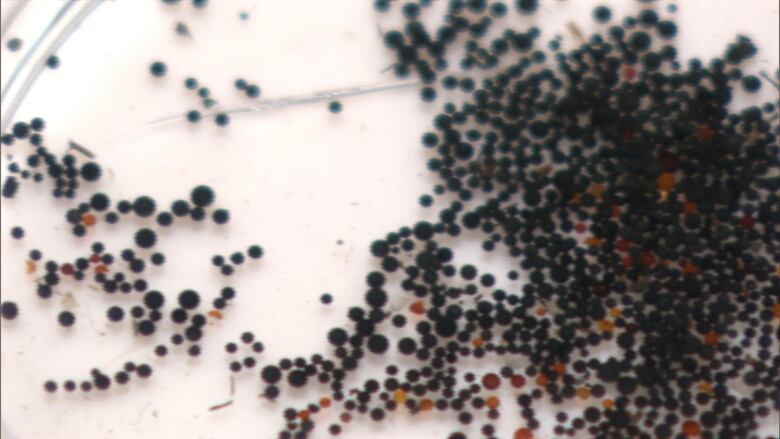Loblaws to stop making products with microbeads by 2018
Company says it will also phase out use of triclosan, phthalates in household items and cosmetics

Loblaws says that by the end of 2018, it will stop using triclosan, phthalates or microbeads in the household and cosmetic products it manufactures.
Triclosan, found in antibacterial soaps and body washes, toothpaste and some cosmetic products, is believed to contribute to antibiotic resistance as it becomes increasingly prevalent in the environment.
Phthalates are chemicals used to add fragrance to products like soaps, shampoos, body washes, hairsprays and nail polishes, and to soften plastics. There are concerns that they may interfere with the body's endocrine system.
- Pressure mounts to label microbeads as toxic substance
- Canada's Great Lakes are being polluted with billions of tiny pieces of plastic
Microbeads are commonly used in facial and body scrubs, but are so tiny that they aren't captured by water-treatment systems, so end up in lakes and river. They also resemble fish eggs, which means they are often consumed by other fish, possibly leading to death when they get lodged in their bodies.
"Microbeads create a lifecycle issue for our organization," Loblaws president Galen Weston said. "We sell skin care with microbeads. We sell fish. And, in an odd twist, our beauty products may ultimately impact our commitment to sustainable seafood."
Weston said the grocery giant is working to remove the ingredients from all of its Life Brand and President's Choice products over the next three years.
Weston said in a statement that emerging science and public opinion suggest a measured move away from those ingredients is prudent.
At least one environmentalist praised the company.
"Around the world, scientific evidence is accumulating that these ingredients could be a problem for environmental and human health," said Rick Smith, co-author of two bestselling books on the health effects of pollution and toxic chemicals. "When … Loblaw puts a stake in the ground on an issue like this, it enables real change. This decision to create an ongoing process that reexamines the ingredients within their supply chain, highlights their commitment to protecting the health of consumers and the environment."